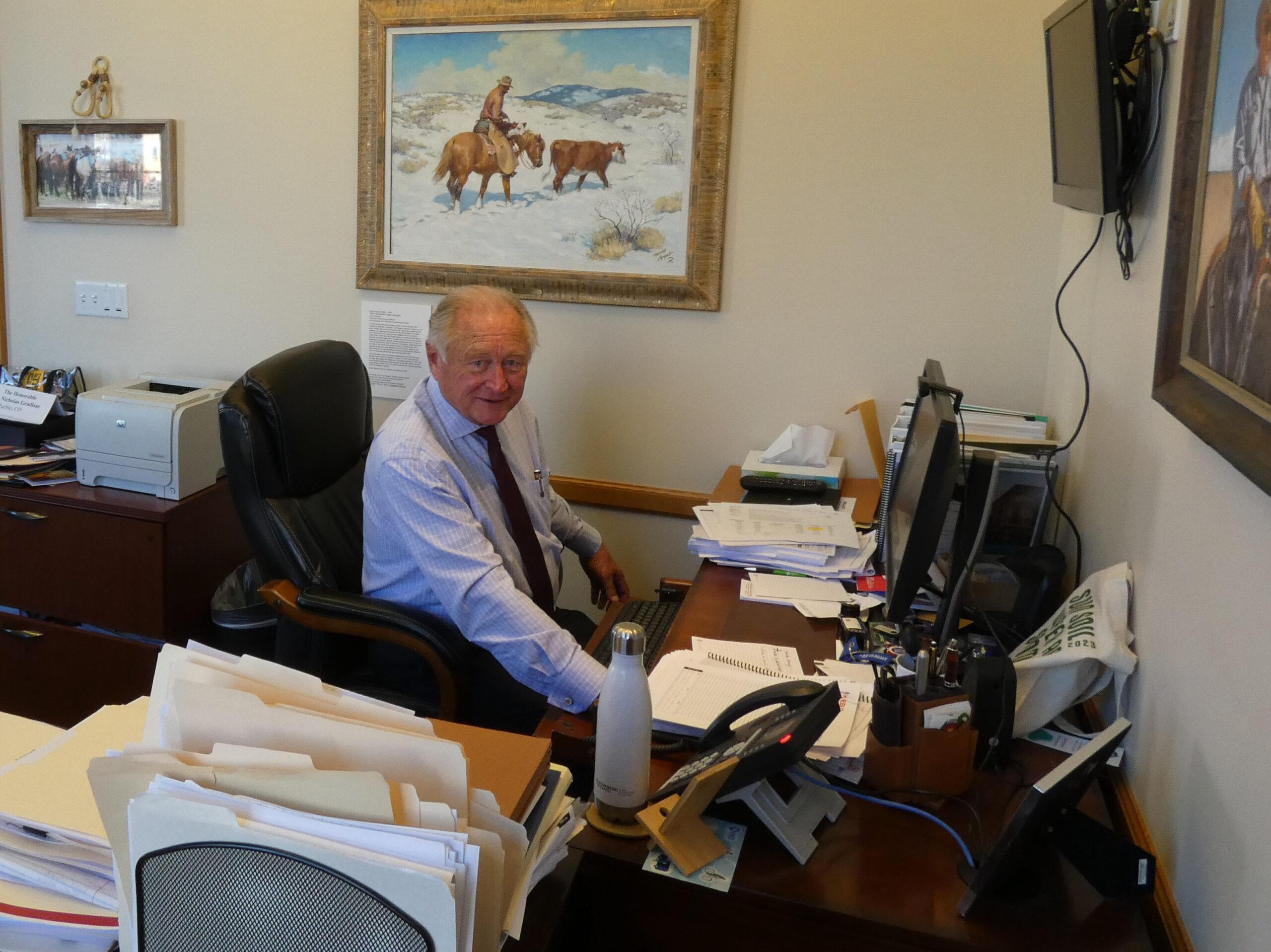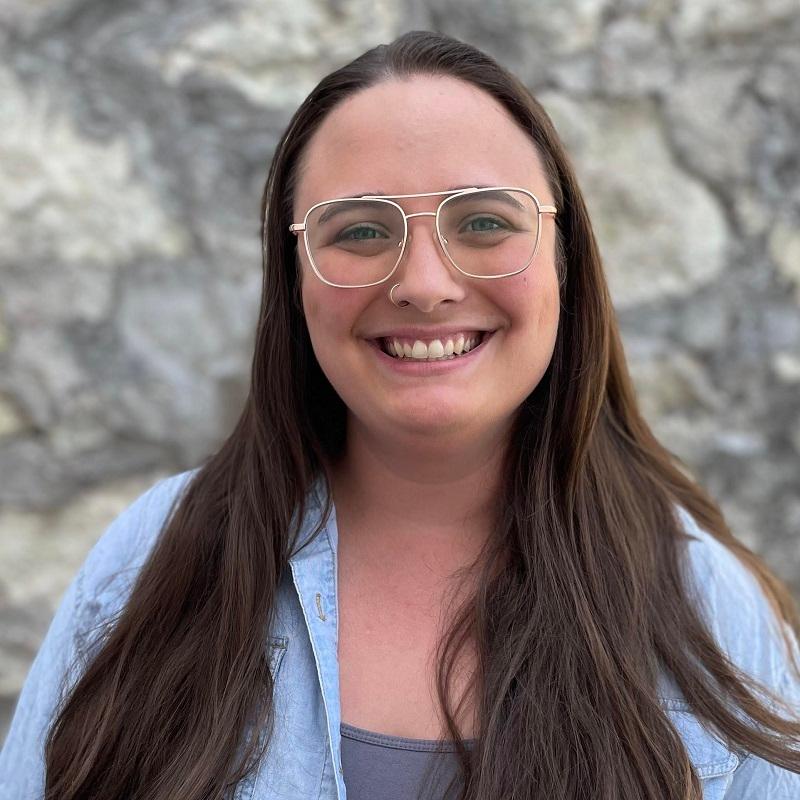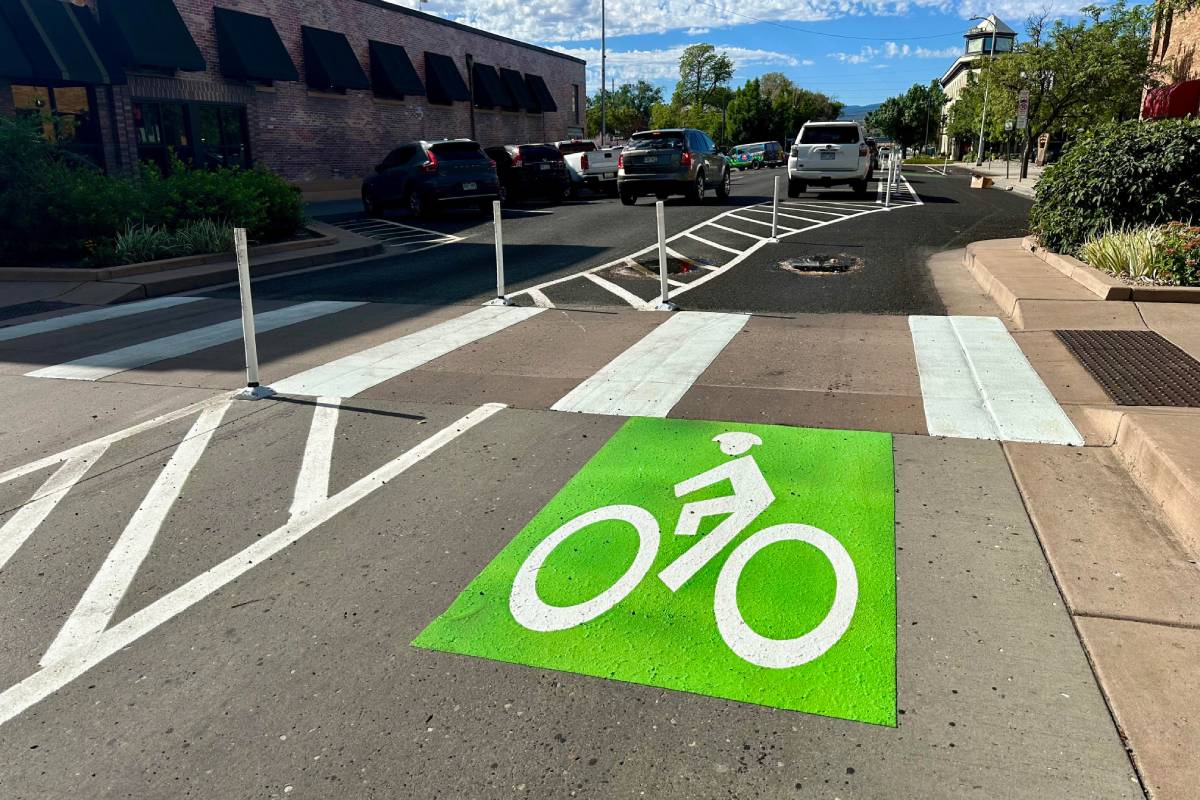
Click here for the Jan. 23 mayoral runoff election results.
Nick Gradisar is the first mayor that Pueblo has elected in more than 100 years. He’s the first to hold the position after the city switched from a city manager form of government to a so-called ‘strong mayor’ structure. Gradisar is vying for a second term against city council president Heather Graham. KRCC spoke to both candidates about their past accomplishments and priorities for Pueblo’s future.
Listen to the full interview here:
Answers are edited for length and clarity.
On Public Safety
I think obviously one of the problems we're facing here in Pueblo is the shortage of police officers. That's not unique to Pueblo, that's happening all over the country. So we're working on ways to, number one, incentivize new police officers to come to work here. During my administration, since January 1, actually, we've increased the starting pay for a Pueblo police officer by 28 percent. We're in the process, we've cooperated with Pueblo County–a new jail is being built, so some of these offenders that are picked up, we'll have a place to put them. We've had some capacity issues in the past, and I think during COVID, the prisons and the jails let a lot of bad people out of jail to avoid infections and those kind of things. We haven't totally recovered from that yet, so we're still working on that.
We're not just counting on getting more police officers, though, we're trying to be smarter about the way we police. So we've recently instituted with Health Solutions an SOS program, which sends a licensed mental health professional, an EMT, and a peer to some of the calls that ordinarily we'd have to send a police officer to, but they don't really need police services. Somebody's sleeping in the park or somebody's walking around naked or something like that. They need somebody to intervene on a mental health issue. And so we think about 3 percent of the calls that we get in the police department could be handled by that team. So we're doing that.
We're also setting up a real-time crime center and trying to take advantage of technology that will allow us to utilize license plate readers, gunshot reports, those kind of things to start investigating crimes almost as soon as the call comes into 911. And this will be by civilians rather than post-certified officers. So we're hoping a combination of all those things, will make a difference.
Part I crimes, the most serious crimes, are actually down in Pueblo about 12 percent in 2023, based on the numbers I saw from the chief. So we're going in the right direction, but we still have a lot of work to do.
On Housing
The housing market is tight in Pueblo. We're short. I mean, we had a study done in 2021, the city and the county, that showed that we'd be 9,500 housing units short in the next 10 years. And you don't really have to have a study to know that. All you have to do is listen to people talk about rents and the unavailability of being able to find a place that they can live. So we're working with developers, number one. I think that's critical. We opted into Prop 123, which will provide money for affordable housing projects to developers here. We're working with property owners here to try to help them develop their property into housing units.
One of the things we've done is we've enacted a vacant property ordinance. Two years ago we enacted that, and the gist of that was not to fine people or collect money, but to put some of these vacant properties back into productive use. We have about three or four times as many vacant houses in the city of Pueblo as we do homeless people. These are houses that are in our older neighborhoods. They're boarded up, they're still structurally sound, some of them, and could be rehabbed for a not very expensive amount of money and made livable again for individuals. And that would, I think, be affordable housing.
But one of the things the housing study found is that any kind of housing helps affordable housing because even if it's market rate apartments that cost a lot of money, those people that can afford that will then move into those apartments and they won't be competing for some of these other ones. Therefore, those prices won't go up like they've gone up here lately.
Also we've got a national home builder building in Pueblo now. That hasn't happened for a while. So we've seen more subdivision requests and applications in the last three years than we have in decades. So things are going in the right direction. But those kinds of things take time. But we definitely need more housing in the city of Pueblo
On Homelessness
If you look at the numbers that we have, I appreciate that it's hard to get good numbers with respect to homeless people, but every agency that interacts with them is required by HUD to keep track. And if you compare those numbers, the number of homeless and Pueblo’s actually down that are entered in that system. Every year we do a point-in-time count. Every two years it's a sheltered and unsheltered point-in-time count. If you compare those recent counts, the number of homeless in Pueblo went up about 30 in the last two years.
So it's a problem. We're continuing to work on that problem. We just celebrated the opening of a permanent warming shelter in the city of Pueblo. We helped Pueblo Rescue Mission acquire some property, and it keeps homeless people from freezing to death and bitter cold. But it also gets them in contact with an agency that can provide access to services that will, if they want to take advantage of them, help them change their station in life.
There's a myriad of causes to homelessness. I mean, we've always had hobos, people that like that lifestyle, they're transients and they sort of move from place to place. Certainly people have situational factors arise in their life that make them homeless. But when I referred to the Homeless Management Information System that HUD requires agencies to enter homeless people into that they interact with, the number one condition afflicted by the homeless in the city of Pueblo is a mental health disorder. That far exceeds alcoholism or drug abuse. It's a mental health disorder. So one of the things we have to do is get much more aggressive in terms of our outreach to those mentally ill homeless people that are in the city of Pueblo.
We closed our civil commitment beds at the Mental Health Institute. Parkview Hospital closed their civil beds at their hospital so that there's not a place here in town where we can require homeless people to get treatment for their mental health. It's always been the law, and it's still the law, that if you're mentally ill and as a result of that mental illness, you're dangerous to yourself or other people, or you're unable to take care of your basic personal needs like clothing, food, shelter, you can be required to get mental health treatment. The problem we have is we don't have anywhere to put them. And if we did, we'd see a reduction in homeless because with modern psychiatric medications, it would put these people back in touch with reality.
On how to attract more jobs to Pueblo
One of the ways I think is by developing relationships with our existing companies, which I've certainly done with EVRAZ Steel and with CS Wind. PEDCO is our economic development recruiter. They're always on the lookout for new companies that are looking for a place to come that have good jobs to bring to Pueblo. We have some prospects in mind.
My goal as the mayor was and is to try to create an economy here where every young person who wants to remain in Pueblo is able to find a job or career that will allow them to support their family and that nobody should have to leave Pueblo in order to make a living. And I think we're making good strides, good progress on that. We've created over a thousand jobs in the last three years, including 850 at CS Wind, and I think you'll see many more coming in a few years as well.
On Pueblo’s future
30 years from now, I see a more vibrant downtown and Union Avenue area. I think we're going to see many more people living down in the downtown area, young people. We're going to hopefully attract some developers here that will build some new stuff that is conducive to young people wanting to bring their job with them. When they come to Pueblo, we'll have state-of-the-art fiber networks for them. So that access to work won't be a problem, but they'll be able to live downtown, eat downtown, entertain themselves downtown, have access to our trails and parks.
That's what I see for the city of Pueblo, as well as that economy that allows everybody to find a job that will allow them to support their families and children in the city of Pueblo.









